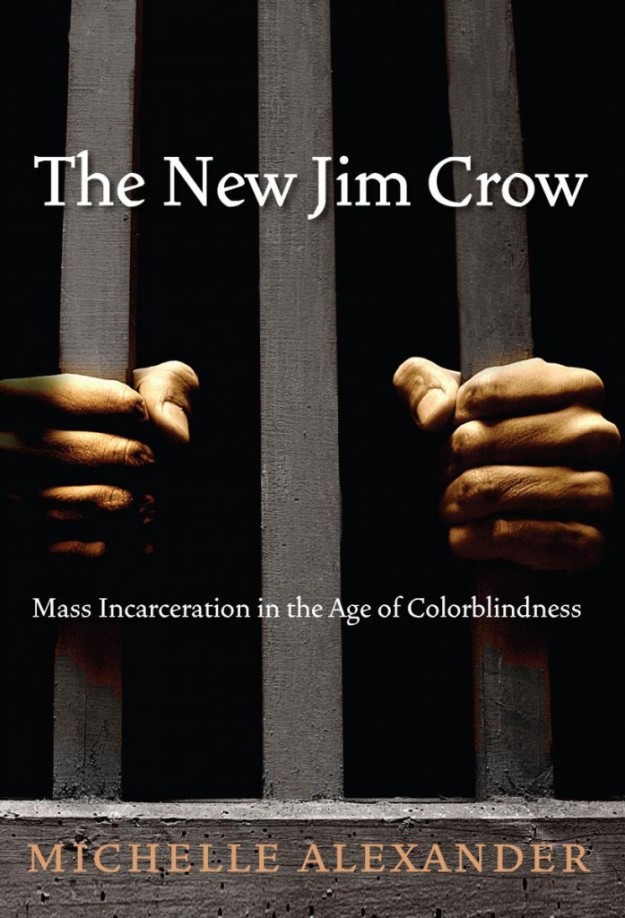ETA (8/29/2012): Rebecca Kumar’s open letter regarding this book is important to read and intellectually engage with. Most specifically, I agree that it is important for both Skloot and reviewers — particularly white reviewers, including myself — to acknowledge that the “creative non-fiction” in which the book traffics is not “entirely fact,” as I previously called it, but by its nature involves some degree of fabrication. That fabrication cannot be a neutral act, particularly not when it involves a white woman taking license over the life of an already-exploited Black woman who, through her death, is incapable of speaking for herself. Failing to acknowledge the license taken further moves the act beyond “not neutral” into the realm of insidious racism.
Kumar is further right to point out the notable acclaim and financial gain that Skloot has obtained through her work in this very popular book, which ties into the long legacy of white advancement on the backs of Black suffering. This is particularly fraught considering Skloot’s notable lack of political analysis or argument regarding the subjects of her work (medical racism and violence, economic racism, ableism, etc.), something which I previously noted and yet quite jarringly failed to properly engage with. These are matters that I should have engaged with from the beginning, and their omission is inexcusable.

Trigger Warning for sometimes graphic descriptions of human experimentation and medical research on non-consenting individuals
There’s a photo on my wall of a woman I’ve never met, its left corner torn and patched together with tape. She looks straight into the camera and smiles, hands on hips, dress suit neatly pressed, lips painted deep red. It’s the late 1940s and she hasn’t yet reached the age of thirty. Her light brown skin is smooth, her eyes still young and playful, oblivious to the tumor growing inside her — a tumor that would leave her five children motherless and change the future of medicine. Beneath the photo, a caption says her name is “Henrietta Lacks, Helen Lane or Helen Larson.”
No one knows who took that picture, but it’s appeared hundreds of times in magazines and science textbooks, on blogs and laboratory walls. She’s usually identified as Helen Lane, but often she has no name at all. She’s simply called HeLa, the code name given to the world’s first immortal human cells — her cells, cut from her cervix just months before she died.
Her real name is Henrietta Lacks.
— The opening words of The Immortal Life of Henrietta Lacks by Rebecca Skloot
Henrietta Lacks was a poor black woman, a tobacco farmer. She knew that something was wrong when she went to seek health care at the free “colored” ward of Johns Hopkins Hospital. She was diagnosed with a highly aggressive cervical cancer, and during her treatment — without her consent or knowledge — they cut out a piece of her. The cancer cells they cut are still alive today, are growing as I write this, are growing as you read it, are being bought, being sold, and being used for so many different kinds of research, I doubt there’s anyone who could name them all.
Henrietta Lacks died an excruciatingly painful death in 1951. And her cells have helped to develop seemingly endless medical advancements since then, and continue to develop them now. But just like Henrietta Lacks was never told that they cut out a piece of her cervix, her family was never told that here cells were still alive. The Lacks family only learned through a long series of events over 20 years later. Though those cells have made billions of dollars for various companies — both directly through the selling of HeLa to researchers, and indirectly through the selling of medicines and treatments HeLa has been integral in developing — they have not made a cent for the Lacks family. Indeed, at the time the book was written, many of Henrietta’s children and grandchildren continued to struggle financially, and several did not have health insurance to access the care that only exists because their mother and grandmother died.
The Immortal Life of Henrietta Lacks, written by Rebecca Skloot and released in 2010, is about all of this.
Continue reading →





 I just finished reading
I just finished reading  I just finished reading Ann Fessler’s
I just finished reading Ann Fessler’s  I recently finished reading
I recently finished reading  When it comes to “classic” literature, I’m a tough sell. Without a doubt, I prefer modern literature because I prefer modern language and modern narrative styles. I find most of the classics to be over-rated, with the real strength being in theme and basic storyline, not the actual storytelling. I also have a lot of difficulty getting past the misogyny and racism in a lot of classics, no matter how representative of the times it may be.
When it comes to “classic” literature, I’m a tough sell. Without a doubt, I prefer modern literature because I prefer modern language and modern narrative styles. I find most of the classics to be over-rated, with the real strength being in theme and basic storyline, not the actual storytelling. I also have a lot of difficulty getting past the misogyny and racism in a lot of classics, no matter how representative of the times it may be. I just finished reading
I just finished reading